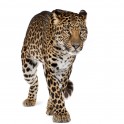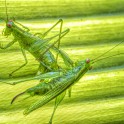-
Usernameelliotconnor
-
Password
Leave password field empty to keep your existing password!
-
Confirm Password


My life’s goal is to reframe the human relationship with nature, to which end I live a vision-oriented lifestyle. I am the founder and CEO of Human Nature Projects, an international environmental NGO which supports volunteers across 104 countries. Yet my theory of change is holistic in scope, encompassing my roles as TED speaker, author, podcast host and filmmaker, and much else besides.
My mission is to develop a model for mass individualism: empowering future leaders to find their potential, connecting the connectors and generating grassroots impact globally. From Quito, Ecuador to Kwa-Zulu Natal, South Africa to quiet Sydney suburbs I’m applying my leadership acumen and systems thinking to solve the most pressing issues of our 21st century.
I’ve built a science lab in my basement, trained in historical broadsword technique, filled a bathtub with origami fish and countless other mad projects over the years. However, if not already clear, then it must be said that environmentalism is my enduring passion: I’ve baited bandicoots with peanut butter, been stalked by a leopard in Botswana, given flying lessons to owls and played chicken with vultures… too many wonderful animal experiences to name, so my favourite topic to talk about would certainly have to be nature. More specifically, I focus on conservation optimism, and on repositioning ourselves as the human species within the animal kingdom. “When we look at nature, we see ourselves.”
I’m blessed to have lived a full and fulfilling life to my present age at 17, but the stand-out journey for me has been the creation of my charity Human Nature Projects over the 12 months. From the seed of an idea whilst lodged in a castle in Southern France in bleak midwinter to the present date with over one hundred countries involved, a burgeoning community and multiplying impact- it has been a story of my life transformed, and (I hope) many others alongside it. I’ve had a roller-coaster of a ride from my prior introverted self to speaking out on the global stage, expressing my vision, realizing it and everything that entails.
Leopards, Life & Death
Jul 06, 2020 4 years agoSeven years ago, aged 10, I almost lost my life. Camped in Khwai campground in the North of Botswana, I was walking back from the bathroom block, lagging several steps behind my family. Reaching the edge of the campsite, I happened to look round and caught sight of a dark shape crouched low to the ground mere metres behind. What ensued was a sequence of events that I will never forget. “I think there's something behind me,” I said. My brother Kieran turned round from several metres ahead and shone his torch in the direction of my gaze. There, illuminated by the pale beam was a young leopard crouched stalking close to the ground, frozen, it's eyes locked in mine. There was a long pause, then the contact was broken and the leopard padded off. My worried parents hastily split myself and my two siblings across our two tents, but the leopard kept returning. First under the car, then circling the fire as my father stood watch with a spade and a wine bottle. Next morning, there was a post up on a prominent 4WD forum describing the encounter as a warning for others. Gradually the comments rolled in, piling up into a thread some four pages long: heated discussion on how to treat this problem leopard, which would most likely be killed; personal anecdotes from others with similar experiences; and, amidst it all a notable section on what should be done about the problem child (me). To clarify, my actions were not unduly brash. In the normal state of things, a leopard would almost never stalk a human- even a child such as myself. Most likely, it was a young animal that had been fed- directly or indirectly- by campers, and so grown to associate humans with food. Entirely the humans' fault, of course, but as a result this leopard had become a threat to people. Relocation would require darting it with tranquilizer to capture it: costly, dangerous to both the people and the leopard, with the added complication that anywhere it were moved to would likely be another leopard's territory. It would be a truly rare authority that took such an option. This animal failed to take my life, and paid the ultimate price- it's a strange sort of debt I feel, that I will never repay. It wasn't my fault, nor that of the leopard or any single human that can shoulder the blame. I see it as a symptom of our current relationship with nature- a relationship I have devoted my life to changing. We are the product of our environment, but we also shape it.
My Family and Other Animals
Jul 06, 2020 4 years agoIt was spring, and that meant several things. Firstly, it meant that the dares and threats to push other family members in the pool- still unpleasantly cold- had begun. It also meant that the season of family birthdays was in full swing; a succession in which, much to my dismay, I was the last. But most importantly of all it meant that my faithful friends the insects had returned in all their glory to the garden, and so every spare afternoon I could find I would be down in those mosquito-ridden, overgrown paths with my camera. They were exciting times. Beyond our lawn lay the pool, shimmering in the afternoon light. And beyond that, further still, was the garden proper: an exotic collection of mismatched plants and shrubs, crowned in the centre by a fig tree perched upon a large flat rock. Beside this ran a narrow path snaking its way to the back of the garden before it petered out into nothingness. I would spend hours down here, crouched peering into the greenery or observing closely as an ant tottered its way around the edge of a leaf on the hunt for food. Always I was surrounded by the whine of mosquitoes, caught between the need for utter stillness and swatting at these pests. And then there were the breakthroughs- those exciting moments in which I would stumble across something truly spectacular. It might be a large praying mantis, a lacework green moth, or an ant freshly ensnared in a spider's web. The nature of the finding itself mattered little. It was simply the pure joy of having discovered something new, something which I had all to myself… almost. One afternoon, I was happily snapping away when I became aware of my mother poised on the garden steps behind me. It was highly unusual of her not to have said anything in greeting, so it was with no small amount of confusion that I broke my concentration and turned to face her. Silence. Stood feet ajar with a cumbersome telephoto lens sighted across at nearby tree, she was certainly quite the picture. I tried to peer up to see what it was she had found, without success. After what seemed like an age, she straightened up and glanced down at my diminutive form peering up at her. She smiled, walking down to my level. “So this is where you spend all you time, is it?” As a conversation starter, I thought this could do with a little improvement, so chose not to respond. “There was a pretty interesting cricket up in the canopy there, but it disappeared, so I took some nice photos of the leaves.” Okay, perhaps I should have spoken first off. “They aren't crickets, they're katydids. And there are plenty more down here (I paused to indicate a few) if you want. But really your chances of getting a decent photo with that lens are pretty slim.” Sometimes it's hard for parents to be perfect.










